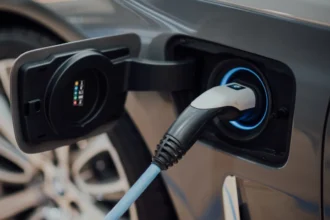Maharashtra has launched a new policy that will make electric vehicles more affordable and easier to use. According to IndianExpress, Chief Minister Devendra Fadnavis announced the Maharashtra Electric Vehicle (EV) Policy 2025 after it was approved in a cabinet meeting on Tuesday. This comprehensive plan will be active until March 31, 2030, offering many benefits to people who choose electric vehicles.
The government is investing a huge amount – Rs 11,373 crore (over 113 billion rupees) – in this five-year plan. This money will help more people buy electric vehicles and build places to charge them. The policy covers all types of electric vehicles including two-wheelers like scooters, three-wheelers like auto-rickshaws, cars, buses, and trucks.
Money Savings for EV Buyers
You will get financial help if you buy an electric vehicle in Maharashtra. The government is offering subsidies of up to 15% of the vehicle cost. A subsidy is money the government gives you to make something less expensive. For example, if an electric scooter costs Rs 1,00,000, you might get up to Rs 15,000 off.
Electric vehicles will also be exempt from motor vehicle tax and registration charges. This means you will save more money when buying an EV compared to a regular petrol or diesel vehicle. According to E-VehicleInfo, these savings were included because the high cost of electric vehicles had been stopping many people from buying them.
Free Highway Travel for Electric Cars
Four-wheeler electric vehicles will get complete exemption from toll fees on major highways in Maharashtra. These include the Mumbai-Pune Expressway, Atal Bihari Vajpayee Shivdi-Nhava Sheva Atal Setu, and Balasaheb Thackeray Maharashtra Samruddhi Mahamarg. On other state and national highways, electric cars will get a 50% discount on toll charges.
This toll exemption means you can travel long distances without paying the extra fees that petrol and diesel car owners must pay. For someone who drives regularly between Mumbai and Pune, this could save thousands of rupees every month in toll charges alone.
Building Charging Stations Across Maharashtra
One big concern with electric vehicles is where to charge them. The new policy addresses this by requiring charging stations every 25 kilometers along highways. According to IndiaToday, charging stations will also be mandatory in new residential housing societies.
This network of charging points will make it much easier for you to travel longer distances in an electric vehicle without worrying about running out of power. The government is investing a significant portion of the budget to make sure these charging stations are widely available.
New Rules for Ride-Sharing Apps
The policy also includes new regulations for app-based transportation services like Ola, Uber, and Rapido. These companies will need to follow strict rules including having GPS tracking in all vehicles, conducting background checks on drivers, and following cyber security guidelines.
There are also special provisions to make ride-sharing services safer for women passengers. While the exact details aren’t specified, these measures aim to make you feel more secure when using these transportation services in Maharashtra.
How This Plan Helps the Environment
According to EVReporter, air pollution from vehicles was a major reason for launching this new policy. By encouraging more electric vehicles, Maharashtra aims to reduce 32 tonnes of PM 2.5 (tiny harmful particles in the air) and 1 million tonnes of greenhouse gas emissions by 2030.
These environmental benefits will help make the air cleaner for everyone in Maharashtra. When you choose an electric vehicle, you’re helping to reduce pollution and fight climate change in your local community.
Maharashtra Compared to Other States
Business Standard reports that Uttar Pradesh, Maharashtra, and Karnataka together account for about 40% of all EV sales in India in 2024. Uttar Pradesh is currently leading with 19% of total EV sales in the country.
The total number of vehicles in Maharashtra has grown rapidly, increasing from 45.8 million in January 2024 to 48.8 million in January 2025. With this new policy, Maharashtra hopes to increase the percentage of those vehicles that are electric.
Financial Breakdown of the EV Policy
The total budget of ₹11,373 crore will be spread over five years, meaning about ₹2,274.6 crore will be spent each year if distributed evenly. According to EVReporter, about 50-60% of this money will go toward subsidies for EV buyers across 13 different vehicle categories.
The remaining funds will support charging infrastructure development and other operational needs. Some sources suggest a lower operational budget of ₹1,993 crore for certain components, with the rest going to broader initiatives to support the EV ecosystem.
What Happens Next with Electric Vehicles?
As this policy takes effect, you’ll likely see more electric vehicles on Maharashtra’s roads and more charging stations appearing across the state. The financial incentives make it a good time to consider an electric vehicle if you’re planning to buy a new car, scooter, or other vehicle.
With major states like Maharashtra making big investments in electric vehicle infrastructure, India is moving faster toward a cleaner transportation future. The question now is: will you be part of this electric revolution, or wait and see how it develops?









